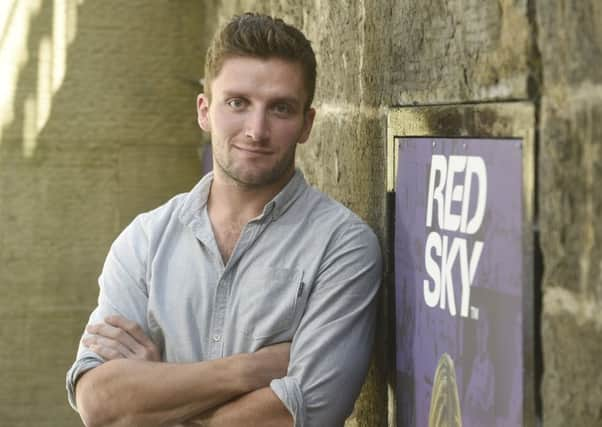Callum Skinner hits out at doping, and the dangers of social media in candid interview


In a candid interview, the cyclist, who spent much of his childhood living in Bruntsfield and attended James Gillespie’s High School, also spoke out about the unsanctioned use of his image by a cause he didn’t even support.
Winning a gold and silver medal at the Olympic Games hasn’t changed Callum Skinner’s life but it has given him a more credible platform from which to air his views.
Advertisement
Hide AdAdvertisement
Hide AdOpen and honest, the guy who is currently blogging his way through the Commonwealth Games experience in Australia is happy to lay it on the line in conversation as well as on the track.
“I think people are a little more interested in what you have to say,” he said. “I think the biggest example of that was when the Leave campaign used my image in a promotional video after the Olympic Games, saying: ‘Look how good we’re doing at the Olympics. This is how good we’ll do outside the European Union’. I didn’t quite see the connection or the relevance, so I said: ‘Thanks, but I’d prefer if you didn’t use my image in your video’. Then that got picked up by Buzzfeed, Daily Mail, all that kind of stuff and the Mail comments were a thing to behold. There were like, ‘Take his medals off him!’.
Collecting two medals in Rio was an extraordinary achievement for a guy who went into those Olympics shouldering a weight of expectation. “I think when I was in the [team sprint] line-up for Rio it was about filling Chris Hoy’s shoes. It was about continuing that Olympic pedigree that the GB team had from Beijing to London and then trying to get to Rio. And that was a position I was really struggling with.
“We went from sixth in the World Championships to first at the Olympic Games but, before Rio, if someone said ‘we’ll give you an extra six months’ I would’ve taken it. There was a vast amount of pressure.”
Advertisement
Hide AdAdvertisement
Hide AdHe is clear about things he isn’t as comfortable with. “I don’t tend to shy away from topics, whether it’s the EU or I’ve recently joined the UK Anti-Doping Athlete Commission, and I’ve had some pretty open discussions about the pros and cons of TUEs and stuff like that.”
The Therapeutic Use Exemption process is a means by which an athlete can get approval to use a prescribed prohibited substance or method for the treatment of a legitimate medical condition.
In Skinner’s case it was asthma, but leaked medical data records in 2016 were intended to cast doubts on his honesty and led to the Scot publishing his own medical records, dating back to when he suffered his first asthma attack as a five-year-old.
“You know, the biggest issue in Anti-Doping is people doping, not people who have followed the rules and gone through the due process to get a medication that might be necessary.”
He has joined the UK Anti-Doping Athlete Commission. “It’s a group of like-minded athletes, basically pushing the clean athlete calls as much as possible.”